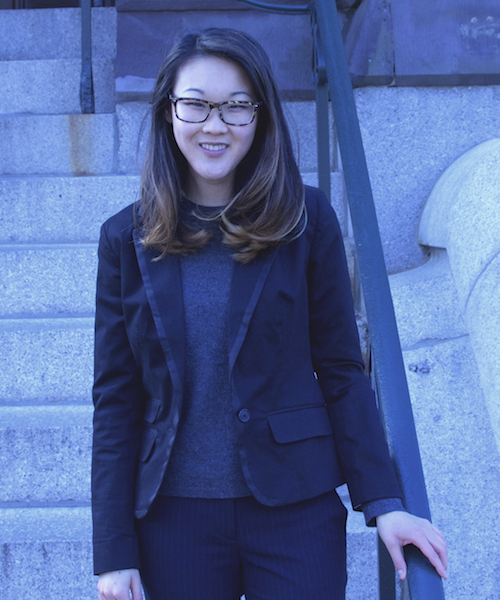
Pessimism Doesn’t Help Address Divergent Interests between China and United States
Xiaogu Xu | July 12, 2019
Responding To: The Future of U.S.-China Relations: Friend or Foe?
Danny Li
I feel optimistic about the future of U.S.-China relations because the United States and the international system it headlines continue to adapt and evolve in the face of new challenges. Since the shift in the Washington consensus on China from constructive engagement to a policy akin to containment, academics and policymakers in the American foreign policy community have been engrossed by two broad strategic questions: To what extent are U.S. capabilities declining? And how quickly are China’s power and influence expanding around the world in relation to the U.S.?
The discussions revolving around these questions have more often than not touched upon the fate of the liberal world order. Both the hard shift in U.S. consensus on China and the deep disillusionment felt by various American stakeholders towards China belie fundamental concerns about the United States and the order’s capacities to respond to the China challenge.
Despite fears about the demise of the liberal world order, I maintain an optimistic outlook. The liberal world order is built to last and it will help manage future U.S.-China relations. The international system has not ended and it remains predominantly liberal. Recent developments from Brexit to right-wing populism to China’s growing illiberal influence around the globe have compounded insecurities that the world order is fundamentally changing. I disagree. Certainly, these events constitute shocks to the system, but any conclusions about the collapse of the liberal world order are premature. What we see is merely a tug of war between liberal and illiberal forces.
Critics forecasting the demise of the liberal world order have assumed that the U.S. is a status quo power and that the order has failed to react to new distributions of power. Neither are particularly true. The United States is not a status quo power. It is constantly revising, pushing for more change, seeking progress and evolution. Continual progress is ingrained in our identity; the U.S. Constitution prescribes as much in calling for a more perfect union. More than four decades ago, the United States stood on the precipice of the Cold War with a desire to Locke-ianize a Hobbesian world. The world existed in a state of continued chaos, or a “state of nature” as Hobbes termed it, and the United States sought a means to bring a sense of normalcy and calm to the proceedings. As a result, the U.S. embraced a leadership role that entailed deep engagement and alliance building.
Today, despite ambivalent rhetoric from the current administration, U.S. security policy has remained consistent. The 2018 National Defense Strategy labeled China as both a “strategic competitor” and an “adversary.” The Department of Defense has called attention to areas of concern: Beijing’s efforts to leverage tech to modernize its military and plans to use the Belt & Road Initiative to further enhance its economic clout. Across the board, American stakeholders have woken up to the politico-military and economic threats posed by China and are responding in kind.
Most importantly, the United States isn’t alone in this struggle against China. Allies and the broader order at large are all on the same page as the United States. The U.S.-led order has been continually adapting and refining itself. There is ample evidence to support this claim. Examples include the gradual enlargement of the G8 to G20 to the Steering Committee that eventually helped coordinate the response to stop the Great Recession from becoming the Great Depression, and the progression from the 1997 Kyoto Protocol to the 2016 Paris Agreement on climate change.
Throughout the years, the order has continually incorporated the lessons learned from its international governance experiences to address edifices and self-correct weaknesses that have popped up along the way. When the WTO failed to respond to the rise of state-owned enterprises and the relatively recent growing wave of trade protectionism, we witnessed pluralistic efforts from members of the liberal world order to collectively raise the floor and respond to those economic challenges. The Asian Infrastructure Investment Bank (AIIB) is another example of how the order has adapted and evolved to move forward even in the temporary absence of U.S. leadership. Despite initial concerns about AIIB being a Chinese policy tool, it has evolved to become the largest membership development bank second only to the World Bank. The AIIB is in line with the evolution of the order that the United States has encouraged and it is now a poster child of how international institutions should operate with or without U.S. leadership.
Even as the United States has undergone a crisis of legitimacy, allies such as Japan and Germany have consistently stood by Ambassador Lighthizer in calling out the market ambitions of a Chinese-state backed economy, economic coercion campaigns, among other Chinese economic and security threats. Credit should be given to the current administration where it is due. The United States has successfully elevated certain flash points such as Taiwan and the South China Sea, etc…and brought in allies for a force-multiplier effect. In doing so, we have sent China a strong message about our intention to defend our interests and commit to principle.
Contemporary commentary often refers to China as ‘the’ rising power. Actually, there are two rising powers in the system. The United States still has the ability, allies, tools, and motivation to shape and refine the order. Following the shift in U.S. policy towards China, the American industrial complex, business community, and innovation base are once again mobilizing to answer the call and respond to the systematic challenge posed by China.
The current U.S. policy on China may seem overly aggressive to some, but it is undeniably one of the most robust bipartisan policy consensuses agreed upon since the Cold War era. It seems that after two decades of foreign policy in flux, there is some merit to the old argument that the United States needs an enemy to be at its best. The United States and its liberal world order are well-equipped to manage the world’s most important bilateral relationship in the next decade.
Moving forward, the biggest challenge for the United States is to restore its confidence before its defeatist attitude becomes self-fulfilling. We must recognize that confidence is its own form of power. It doesn't bode well for U.S. foreign and economic policy interests if at every step, Xi Jinping projects confidence and we project uncertainty and doubt. It is important for us to recognize that the rest of world fears an U.S. retreat from the world stage far more than U.S. dominance. This is super unusual for a superpower and speaks highly of our lasting influence and image on the world stage. Allies want America to be strong and confident. They have more faith in us than we do in ourselves. It is time we repaid that faith by stepping up to the plate and reclaiming our seat at the head of the liberal world order.

Xiaogu Xu | July 12, 2019

Yihong Shi | July 12, 2019

Zhaoqing Li | July 12, 2019

Isabelle Hupez | July 11, 2019

Ivan Solomon | July 11, 2019

Jozanne Murphy | July 11, 2019

Lakshmi Iyengar | July 11, 2019

Aaron Baum | July 10, 2019

Andrea Su | July 10, 2019

Chang Fan | July 10, 2019

Junming Cui | July 10, 2019